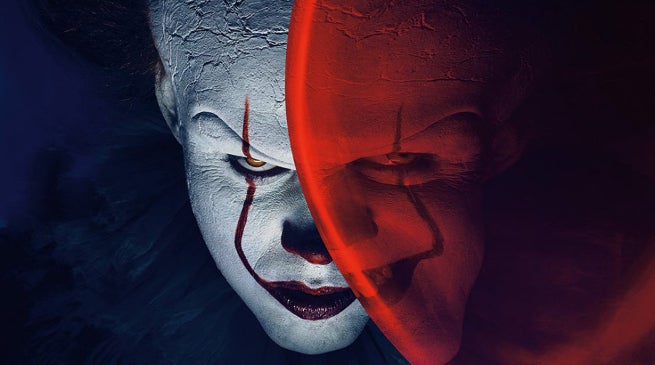Why We Need More Horror TV
Fox's The Exorcist has been a refreshing foray into the landscape of horror-themed TV - at least [...]
Fox's The Exorcist has been a refreshing foray into the landscape of horror-themed TV - at least for the small audience who have been bothering to tune in regularly. The Exorcist TV series is just one example of horror TV shows that have suffered slow deaths due to dwindling numbers of viewers, as fans of the horror genre search and wait for that next Walking Dead-style hit.
However, as The Walking Dead shows signs of its age while other horror shows struggle, it seems like this trend is in danger of dying out within the next few years. That would be a huge missed opportunity, as more horror is exactly what the television medium needs. Here's why.
Thrill TV Is Event TV
Creating a mainstream television hit with millions of loyal viewers has become near impossible in the modern market where cable TV, network TV, and digital streaming options have created a fractured landscape, where everyone can experience TV at their own pace, with their own custom lineup of programming. Like with movies, it's only "event TV" that seems to cut through the noise, which is why shows like The Walking Dead or Game of Thrones now reign supreme, still pulling in huge numbers of real-time viewers.
So what makes TWD and GoT such big "events" that droves of fans still tune in? Shocking thrills, twists, reveals, and deaths, the new versions of "watercooler talk," where that "talk" takes the form of social media trends and chat thread conversations. The great thing about the horror genre? Shocking thrills, twists, reveals, and deaths pretty much come with the territory. In other words: thrill TV is now king, and horror TV excels at providing thrills. Horror TV could easily be the epitome of "must-see" event TV.
Home Viewing Potential
As more and more viewers pull away from the movie theater experience, there are few genres better suited to the pleasure of experiencing entertainment in your home than horror TV.
The best horror works are those that turn everyday life experiences into frightening prospects, and horror TV can easily make the experience of sitting at home in the dark (and/or alone) into a wonderfully unsettling experience.
On paper, that might not sound like much of a sell, but the horror genre has lasted this long by proving one thing: people enjoy being upset, unsettled, and downright frightened by horrific stories. Whether it's demons, serial killers, or supernatural monsters, horror TV could consistently provide viewers an experience that's tantalizingly intense without leaving their couch.
Cult Success
Horror and sci-fi/fantasy are probably the two biggest genres where the term "cult hit" gets thrown around. Both are niches in which capturing a small but passionate band of fans is just as rewarding as having wider mainstream exposure. Shows like The X-Files and Hannibal may seem like big topics now, but both struggled to earn dedicated cult followings before eventually becoming bigger pop-culture fixations.
The rules of television have been in flux for years now, with the measures of things like ratings and demos being redrawn to fit that changing landscape. It's a good time for horror TV to do what the horror movie genre has now mastered: capture a niche audience and keep feeding it, until word of mouth turns niche success into mainstream success. Given the low production costs that are a staple of the horror genre, creating content for specifically for a smaller niche audience is also a lucrative prospect.

Horror Mainstream
While there is a compelling argument to be made for why horror is so good at capturing smaller, niche audience attention, it's ironically the opposite line of thinking that might make the best case for why the time is now for a bigger push to establish more horror-themed TV programming.
If you haven't done the math on the 2017 box office, horror is now one of the most consistently lucrative genres in the entertainment industry. This past year, horror films brought in nearly $1 billion at the domestic box office, and worldwide profits eclipse that number by far. The types of horror films hitting mainstream stride vary in type, from the socially-conscious Get Out, to the blockbuster appeal of IT, to smaller "artsy" films like Split or It Comes at Night -- even studio sequels like Jigsaw and Annabelle: Creation managed to deliver fresh experiences that viewers enjoyed. Clearly, horror is becoming a go-to choice for mainstream audiences, and if the trend is hot on the theatrical level, there's no reason to bet against it working on the TV screen, as well.
If theThe Walking Dead isn't proof enough of what horror TV can do, Netflix's Stranger Things has also become a cultural phenomenon, offering viewers some classic sci-fi/horror tropes, along with its '80s nostalgia appeal.
What's Lacking Right Now
Horror movies have a long tradition of taking big risks with style, bucking convention, and creating novel and (sometimes) milestone films using bare-bones resources and budgets. That all speaks to what the genre has achieved through novelty and creativity -- qualities that we haven't really seen transferred to horror TV.
Going forward, we need more risky ventures like Bryan Fuller's Hannibal, which has since airing provided an example of the thrilling and artistic boundaries that can be pushed when dark horror subject matter is treated with maturity and respect by talented filmmakers. As TV has become the new frontier of artistry and experiment, it grown into a great potential host for the creative ingenuity that's always been a part of the horror genre.
****
Right now, if you want to watch some horror-themed TV, your options are limited to The Walking Dead (Sundays on AMC), or The Exorcist (Fridays on Fox), as well as horror themed streaming series like Netflix's Stranger Things. Hopefully, that list will only grow in 2018.
0comments